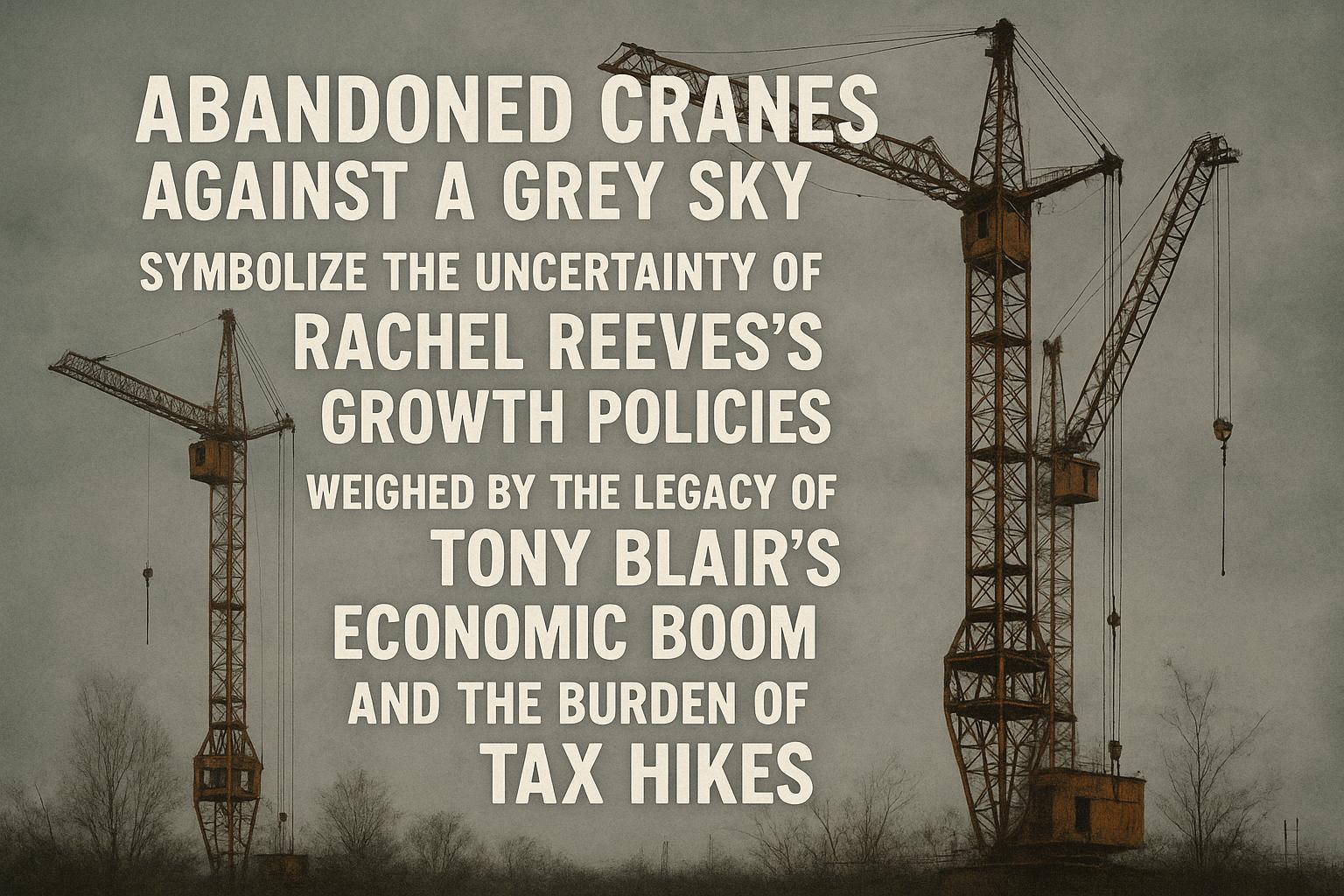Chancellor Rachel Reeves, since assuming office 15 months ago, has steadfastly declared economic growth as her paramount objective. Yet despite persistent assertions, the UK continues to grapple with the absence of meaningful growth, and reputable forecasters remain sceptical about its imminent return. Reeves has advocated for reforms such as loosening planning laws to accelerate house-building, believing this will stimulate growth. However, evidence points to declining house-building under Labour’s governance, casting doubt on the effectiveness of this strategy.
Reeves has also courted increased economic engagement with China, permitting a new embassy in the City of London equipped with advanced surveillance technology, reflecting a willing compromise of security for potential growth. Critics warn that this approach offers a dangerous illusion, as Chinese investment and trade are unlikely to serve as the panacea for the UK's economic challenges. Among her more positive initiatives are the promotion of investment in artificial intelligence, support for the expansion of Heathrow Airport with a third runway, and aspirations to reduce bureaucratic red tape stifling businesses. Yet, even these measures face scepticism about their capacity to deliver the robust growth she desires.
The Chancellor’s approach starkly contrasts with lessons drawn from the era of former Prime Minister Tony Blair. During Blair’s tenure, the UK achieved an average annual growth rate exceeding 3%, outperforming major European economies such as Germany and France. This prosperity was underpinned by fiscal policies that preserved the relatively low tax regime inherited from preceding Conservative governments—most notably, a top income tax rate held steadily at 40%, down from the punitive 83% in the late 1970s. Economists attribute Blair’s economic success largely to these tax structures, which stimulated enterprise and investment.
Recently, Blair reportedly expressed support for reducing the top rate of income tax below 40%, reflecting concerns about historically high direct taxes including income tax and National Insurance. He also implied the necessity of curbing public expenditure to enhance economic performance. This stance resonates with the doctrine of economist Arthur Laffer, who posited that cutting tax rates can increase government revenue by fueling economic growth—a concept largely dismissed by Rachel Reeves, who has instead pursued higher taxes as her primary fiscal instrument.
In her October 2024 Budget, Reeves announced £40 billion in tax hikes—the largest since 1993—such as raising employers' National Insurance to 15% on salaries above £5,000 and adjusting income tax thresholds only for inflation after 2028. The Office for Budget Responsibility warned these measures would push the UK’s tax burden to its highest ever level, a development met with concern by fiscal experts over potential adverse effects on wage growth and public confidence in government.
Moreover, Reeves’ proposed new council tax bands targeting higher-value homes risk penalising older homeowners who are asset-rich but income-poor, effectively trapping them in their properties due to the burden of transaction costs like stamp duty. Critics argue this approach contradicts the need to foster economic dynamism.
Industry responses to Reeves’ growth strategy offer a nuanced perspective. Organisations such as PwC have welcomed the Chancellor’s emphasis on planning reform and infrastructure investment, underscoring the importance of unlocking private-sector capital alongside government support to drive growth. Yet analysts caution that without broader reforms and sustained private investment, achieving substantial growth remains elusive. The OECD’s projections compound these concerns, forecasting UK inflation to exceed the Bank of England’s target in 2025 and 2026, while growth is expected to slow notably in the medium term.
Reeves’ support for Heathrow’s third runway underlines her intent to boost economic activity through infrastructure expansion, with research predicting modest GDP gains and job creation. However, environmental groups warn that such development must be balanced against the imperative to meet climate targets, reflecting the complex trade-offs in growth policy.
Despite her professed commitment to growth, Reeves’ preference for higher taxation and reluctance to significantly cut public spending have drawn criticism from across the political spectrum. Notably, her hiring of Labour MP Torsten Bell, who advocates maintaining elevated tax levels, signals a continued adherence to expansionary fiscal policies that some analysts label misguided and potentially damaging to the UK’s economic future.
The stark reality remains: according to forecasts presented in the book Prosperity Through Growth, if current trends persist, nations with lower tax rates and public spending, such as Poland, Turkey, and Malaysia, are poised to surpass the UK in per capita income over the coming decades. The pathway to revitalised economic growth appears straightforward through lower taxation and controlled public expenditure—yet Chancellor Reeves seems either resistant or unable to embrace this formula.
In sum, while Chancellor Rachel Reeves has articulated a clear goal of economic growth, her policy mix of increased taxation, cautious public spending restraint, and selective investment faces deep skepticism regarding its efficacy. The contrast with Tony Blair’s era of growth, underpinned by more moderate taxation and fiscal discipline, is stark. As debates continue, the UK’s economic trajectory hinges on whether Reeves can reconcile her political and ideological commitments with the pragmatic reforms necessary to rejuvenate growth and prosperity.
📌 Reference Map:
- Paragraph 1 – [1], [4], [7]
- Paragraph 2 – [1], [2], [4]
- Paragraph 3 – [1], [5], [7]
- Paragraph 4 – [1], [2]
- Paragraph 5 – [1], [2]
- Paragraph 6 – [4], [5], [7]
- Paragraph 7 – [1], [3], [4]
- Paragraph 8 – [1], [2], [7]
- Paragraph 9 – [1], [7]
- Paragraph 10 – [1], [5], [7]
Source: Noah Wire Services
